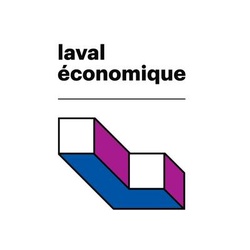Discover Tax Credits for Companies in Quebec for 2026
Explore the tax credits available to businesses in Quebec. Maximize your tax benefits.
Quebec-based businesses benefit from various tax credits that serve as important fiscal incentives to stimulate investment, innovation, and growth. These financial assistance measures are designed to reduce the tax burden on companies by rewarding strategic activities such as research and development, multimedia creation, workforce training, and equipment purchases.
55 opportunities available

Tax CreditsOpen
Development of E-Business Tax Credit (CDAE)
Investissement Québec (IQ)Tax credit for development of a Quebec e-business
Eligible Funding
- Up to 30% of project cost
Eligible Industries
- Information and cultural industries
- Finance and insurance
- Professional, scientific and technical services
Types of eligible projects
Artificial Intelligence (AI)TechnologyHuman ResourcesInnovationDigital Transformation

Tax CreditsOpen
Research, Innovation and Commercialization Tax Credit (CRIC)
Gouvernement du QuébecRefundable tax credit for Quebec business R&D and precommercialization
Eligible Funding
- From $50,000 to $1,000,000
- Up to 30% of project cost
Eligible Industries
- Manufacturing
- Professional, scientific and technical services
Types of eligible projects
CommercializationTechnologyInnovation

Tax CreditsOpen
Tax holiday for a new business created to commercialize intellectual property
Ministère de l'économie, de l'innovation et de l'énergie du Québec (MEIE)Tax credit for commercialization of intellectual property (IP) in Quebec
Eligible Funding
- No Condition
Eligible Industries
- Manufacturing
- Information and cultural industries
- Educational services
Types of eligible projects
Commercialization

Tax CreditsOpen
Investment and innovation tax credit (IITC)
Revenu QuébecTax credit for investment and innovation in Quebec
Eligible Funding
- Up to 25% of project cost
Eligible Industries
- All industries
Types of eligible projects
TechnologyInnovationDigital Transformation

Tax CreditsOpen
PAMT — Workplace Apprenticeship
Gouvernement du QuébecWorkplace Apprenticeship pairs experienced workers with apprentices
Eligible Funding
- No Condition
Eligible Industries
- All industries
Types of eligible projects
Human Resources

Tax CreditsOpen
Tax credit for external design in Québec
Revenu QuébecTax credit for a design activity carried out by an outside consultant
Eligible Funding
- Up to 24% of project cost
Eligible Industries
- Manufacturing
Types of eligible projects
Innovation

Tax CreditsOpen
Incentive deduction for the commercialization of innovations (IDCI)
Gouvernement du QuébecReduced tax rate for Quebec-based commercialization of innovations
Eligible Funding
- Up to 83% of project cost
Eligible Industries
- Agriculture, forestry, fishing and hunting
- Manufacturing
- Information and cultural industries
- Professional, scientific and technical services
Types of eligible projects
CommercializationInnovation

Eligible Funding
- Maximum amount : 3,000,000 $
- Up to 30% of project cost
Eligible Industries
- Professional, scientific and technical services
Types of eligible projects
Innovation

Tax CreditsWage Subsidies And InternsOpen
Financial assistance for the hiring of a person to integrate a job on a long-term basis
Gouvernement du QuébecSupports employers hiring candidates facing employment barriers
Eligible Funding
- No Condition
Eligible Industries
- Construction
- Other services (except public administration)
- Public administration
Types of eligible projects
Human Resources

Tax CreditsOpen
Additional deduction for transportation costs for manufacturing SMEs
Revenu QuébecTax deduction for manufacturing SMEs' transportation costs in remote areas
Eligible Funding
- Up to 25% of project cost
Eligible Industries
- Manufacturing
Types of eligible projects

Tax CreditsOpen
Tax Credit for an On-the-Job Training Period – Individuals
Revenu QuébecRefundable tax credit for businesses with eligible trainees in Québec
Eligible Funding
- No Condition
Eligible Industries
- All industries
Types of eligible projects
Human Resources

Tax CreditsOpen
Development of E-Business Tax Credit Integrating Artificial Intelligence (CDAEIA)
Investissement Québec (IQ)Supports digital business projects integrating artificial intelligence in Quebec
Eligible Funding
- Up to 30% of project cost
Eligible Industries
- Information and cultural industries
- Professional, scientific and technical services
- Administrative and support, waste management and remediation services
Types of eligible projects
Artificial Intelligence (AI)TechnologyInnovationDigital Transformation

Tax CreditsWage Subsidies And InternsOpen
Tax credit for an on-the-job training period
Revenu QuébecTax credit for Quebec businesses with trainees
Eligible Funding
- Up to 32% of project cost
Eligible Industries
- All industries
Types of eligible projects
Human Resources

Tax CreditsClosed
Tax Credit for the Digital Transformation of the Print Media
Revenu QuébecSupports digital transformation initiatives for Quebec print media organizations
Eligible Funding
- Maximum amount : 7,000,000 $
- Up to 35% of project cost
Eligible Industries
- Information and cultural industries
Types of eligible projects
Digital Transformation

Tax CreditsArchived
Tax credit for retaining experienced workers (Code 107)
Revenu QuébecTax credit for employing experienced workers in Quebec
Eligible Funding
- Up to 75% of project cost
Eligible Industries
- All industries
Types of eligible projects
Human Resources

Tax CreditsOpen
Trois-Rivières — Revitalization of certain industrial sectors
City of Trois-RivièresProperty tax credit for industrial building improvement projects
Eligible Funding
- Up to 70% of project cost
Eligible Industries
- Construction
- Manufacturing
- Transportation and warehousing
- Professional, scientific and technical services
Types of eligible projects

Tax CreditsOpen
Trois-Rivières — Revitalization of old neighborhoods
City of Trois-RivièresProperty tax credit for building improvements in eligible historic neighborhoods
Eligible Funding
- Up to 100% of project cost
Eligible Industries
- All industries
Types of eligible projects

Tax CreditsOpen
Trois-Rivières — Revitalization of certain serviced land and recycling of certain buildings
City of Trois-RivièresProperty tax credit for residential construction, renovations, and conversions in serviced areas
Eligible Funding
- Up to 100% of project cost
Eligible Industries
- All industries
Types of eligible projects

Tax CreditsOpen
Tax credit for shipbuilding
Revenu QuébecTax incentive supporting shipbuilding and naval innovation in Quebec
Eligible Funding
- Up to 38% of project cost
Eligible Industries
- Manufacturing
- Transportation and warehousing
Types of eligible projects
TechnologyEnvironment and ClimateInnovation

Tax CreditsOpen
Tax credit for multimedia event or environment productions sponsored outside Quebec
Société de développement des entreprises culturelles (SODEC)Money to showcase your multimedia project outside Quebec
Eligible Funding
- No Condition
Eligible Industries
- Information and cultural industries
- Arts, entertainment and recreation
Types of eligible projects
Commercialization

Tax CreditsOpen
Tax credit for film production services
Société de développement des entreprises culturelles (SODEC)Quebec film, animation and special effects tax credit
Eligible Funding
- Up to 25% of project cost
Eligible Industries
- Information and cultural industries
Types of eligible projects
Technology

Tax CreditsOpen
Research Consortium Tax Credit
Ministère de l'économie, de l'innovation et de l'énergie du Québec (MEIE)Tax credit for cooperative pre-competitive research in Quebec
Eligible Funding
- Up to 80% of project cost
Eligible Industries
- Agriculture, forestry, fishing and hunting
- Mining, quarrying, and oil and gas extraction
Types of eligible projects
TechnologyInnovation

Grant and FundingTax CreditsOpen
Grant program for Old Saint-Eustache
Saint-EustacheSupports commercial building renovations in historic Saint-Eustache area
Eligible Funding
- Maximum amount : 42,500 $
- Up to 33% of project cost
Eligible Industries
- Retail trade
- Accommodation and food services
- Other services (except public administration)
Types of eligible projects

Tax CreditsOpen
Quebec book publishing tax credit
Société de développement des entreprises culturelles (SODEC)Tax credit for publishing Quebec books and international sales
Eligible Funding
- Maximum amount : 437,500 $
- Up to 35% of project cost
Eligible Industries
- Information and cultural industries
Types of eligible projects
Commercialization

Tax CreditsClosed
Laval Économique — Tax credit – Urban Expansion
Laval EconomiqueProperty tax credit for non-residential construction or renovations
Eligible Funding
- Maximum amount : 1,600,000 $
- Up to 100% of project cost
Eligible Industries
- Manufacturing
- Administrative and support, waste management and remediation services
- Arts, entertainment and recreation
Types of eligible projects
Environment and Climate
Estimate your tailored tax credits
Quickly assess how much your business could claim with our smart tax credit calculator.
Get a personalized estimate from 150+ tax credits available through the helloDarwin platform.

Tax CreditsOpen
Tax Credit for Pre-Competitive Private Partnership Research
Ministère de l'économie, de l'innovation et de l'énergie du Québec (MEIE)Tax credit for pre-competitive partnership research in Quebec
Eligible Funding
- Maximum amount : 3,000,000 $
- Up to 30% of project cost
Eligible Industries
- Professional, scientific and technical services
Types of eligible projects
Innovation

Tax CreditsOpen
Tax credits for production of multimedia titles
Investissement Québec (IQ)Tax credit for the production of multimedia titles in Quebec
Eligible Funding
- Up to 37% of project cost
Eligible Industries
- Information and cultural industries
Types of eligible projects
Technology

Tax CreditsOpen
APCHQ — Crédit d'impôt pour stage en milieu de travail - Apprenti
Association des professionnels de la construction et de l’habitation du Québec (APCHQ)Tax credit supporting workplace training for eligible apprentices
Eligible Funding
- No Condition
Eligible Industries
- Construction
Types of eligible projects
Human Resources

Tax CreditsOpen
Tax Holiday for Foreign Researchers
Ministère de l'économie, de l'innovation et de l'énergie du Québec (MEIE)Tax holiday for foreign researcher salaries in Quebec
Eligible Funding
- No Condition
Eligible Industries
- Professional, scientific and technical services
Types of eligible projects
Human ResourcesInnovation

Tax CreditsOpen
Agricultural property tax credit program
Ministry of Agriculture, Fisheries and Food (MAPAQ)Provides financial relief for agricultural property tax expenses
Eligible Funding
- No Condition
Eligible Industries
- Agriculture, forestry, fishing and hunting
Types of eligible projects
Environment and Climate

Tax CreditsOpen
Laval Économique — Tax credit – Urban modernization
Laval EconomiqueSupports property tax credits for industrial park modernization projects
Eligible Funding
- Maximum amount : 1,000,000 $
- Up to 100% of project cost
Eligible Industries
- Construction
- Manufacturing
- Real estate and rental and leasing
- Professional, scientific and technical services
Types of eligible projects
Environment and Climate

Tax CreditsOpen
Tax credit for internal design in Québec
Revenu QuébecPayroll tax credit for eligible internal design activities
Eligible Funding
- Minimum amount : 150,000 $
- Up to 24% of project cost
Eligible Industries
- Manufacturing
- Professional, scientific and technical services
Types of eligible projects
Innovation

Tax CreditsOpen
Tax credit to support the print media
Revenu QuébecTax credit supporting wages for eligible print media organizations
Eligible Funding
- No Condition
Eligible Industries
- Information and cultural industries
Types of eligible projects
Human Resources

Tax CreditsOpen
Tax Credit for Training a Worker Employed by a SME
Revenu QuébecOffers tax credits for small businesses training workers
Eligible Funding
- No Condition
Eligible Industries
- All industries
Types of eligible projects
Human Resources

Tax CreditsClosed
Tax Credit for Major Digital Transformation Projects
Revenu QuébecTax credit supports digital transformation projects for eligible companies
Eligible Funding
- No Condition
Eligible Industries
- All industries
Types of eligible projects
Digital Transformation

Tax CreditsOpen
Tax credit for conversion of a ship
Revenu QuébecProvides a tax credit for eligible ship conversion projects
Eligible Funding
- No Condition
Eligible Industries
- Transportation and warehousing
Types of eligible projects
Environment and Climate

Tax CreditsOpen
Tax credit for ethanol production in Quebec
Revenu QuébecTax credit supporting eligible ethanol production activities in Quebec
Eligible Funding
- No Condition
Eligible Industries
- Manufacturing
Types of eligible projects
Environment and Climate

Tax CreditsOpen
Show production tax credit
Société de développement des entreprises culturelles (SODEC)Supports Quebec show producers with refundable tax assistance
Eligible Funding
- Maximum amount : 1,250,000 $
- Up to 35% of project cost
Eligible Industries
- Arts, entertainment and recreation
Types of eligible projects
CommercializationArtificial Intelligence (AI)TechnologyEnvironment and ClimateHuman ResourcesBusiness BuyoutInnovationDigital Transformation

Tax CreditsOpen
Tax credit for biodiesel production in Quebec
Revenu QuébecSupports Quebec companies producing eligible biodiesel before April 2023
Eligible Funding
- No Condition
Eligible Industries
- Manufacturing
Types of eligible projects
Environment and Climate

Tax CreditsOpen
Tax credit for technological adaptation services
Revenu QuébecTax credit for technology transfer in Quebec
Eligible Funding
- No Condition
Eligible Industries
- All industries
Types of eligible projects
Technology

Tax CreditsOpen
Tax Holiday for Foreign Experts
Ministère de l'économie, de l'innovation et de l'énergie du Québec (MEIE)Tax holiday for foreign expert salaries in Quebec
Eligible Funding
- No Condition
Eligible Industries
- Professional, scientific and technical services
Types of eligible projects
TechnologyInnovation

Tax CreditsOpen
Tax credit for cellulosic ethanol production in Quebec
Revenu QuébecSupports eligible Quebec companies producing cellulosic ethanol
Eligible Funding
- No Condition
Eligible Industries
- Manufacturing
Types of eligible projects
Environment and ClimateInnovation

Tax CreditsOpen
Tax credit for pyrolytic oil production in Québec
Revenu QuébecTax incentive supporting eligible pyrolytic oil production in Quebec
Eligible Funding
- No Condition
Eligible Industries
- Manufacturing
Types of eligible projects
TechnologyEnvironment and ClimateInnovation

Tax CreditsOpen
Payroll tax credit – CFI
Revenu QuébecPayroll tax incentive for international financial sector employers in Montreal
Eligible Funding
- No Condition
Eligible Industries
- Finance and insurance
Types of eligible projects
Human Resources

Tax CreditsOpen
Tax credit for tip reporting – Businesses
Revenu QuébecTax credit for employers paying social charges on employee tips
Eligible Funding
- No Condition
Eligible Industries
- Accommodation and food services
Types of eligible projects
Human Resources

Tax CreditsOpen
Saint-Eustache — Tax credit program
Saint-EustacheProvides property tax credits for eligible development and renovation projects
Eligible Funding
- Up to 80% of project cost
Eligible Industries
- Construction
- Manufacturing
- Retail trade
- Real estate and rental and leasing
Types of eligible projects
Construction and Renovation

Tax CreditsOpen
Tax credit for taxes paid by an environmental trust – Businesses
Revenu QuébecTax credit for businesses with income from environmental trusts
Eligible Funding
- No Condition
Eligible Industries
- All industries
Types of eligible projects
Environment and Climate

Tax CreditsOpen
Resource Tax Credit
Revenu QuébecQuebec tax credit for eligible resource-related expenses
Eligible Funding
- No Condition
Eligible Industries
- Mining, quarrying, and oil and gas extraction
Types of eligible projects

Tax CreditsOpen
Tax credit for the production of sound recordings
Société de développement des entreprises culturelles (SODEC)Supports Quebec companies in sound and audiovisual recording production
Eligible Funding
- Up to 35% of project cost
Eligible Industries
- Information and cultural industries
Types of eligible projects

Tax CreditsOpen
Gaspésie and Maritime Provinces
Investissement Québec (IQ)Refundable tax credit supporting job creation in Quebec maritime regions
Eligible Funding
- Up to 30% of project cost
Eligible Industries
- Agriculture, forestry, fishing and hunting
- Utilities
- Manufacturing
- Arts, entertainment and recreation
Types of eligible projects
Environment and ClimateHuman ResourcesInnovation

Tax CreditsOpen
Tax credit for a new financial services corporation
Revenu QuébecTax credit for eligible new Quebec financial services corporations
Eligible Funding
- No Condition
Eligible Industries
- Finance and insurance
Types of eligible projects
Human ResourcesInnovation

Tax CreditsOpen
Financing of Refundable Tax Credits
Investissement Québec (IQ)Tax credit advance loan in Quebec
Eligible Funding
- From $50,000 to $50,000
- Up to 100% of project cost
Eligible Industries
- Manufacturing
- Information and cultural industries
- Professional, scientific and technical services
Types of eligible projects
TechnologyInnovation

Tax CreditsOpen
Tax credit for biofuel production in Quebec
Revenu QuébecIncentive for eligible Quebec companies producing qualifying biofuels
Eligible Funding
- No Condition
Eligible Industries
- Manufacturing
Types of eligible projects
Environment and Climate

Tax CreditsClosed
Tax credit for Gaspésie and selected maritime regions of Quebec
Investissement Québec (IQ)Tax credit for creating employment in Gaspésie and Maritime Regions
Eligible Funding
- Maximum amount : 25,000 $
- Up to 30% of project cost
Eligible Industries
- Manufacturing
- Arts, entertainment and recreation
Types of eligible projects
Human Resources

Tax CreditsArchived
Capital Synergie
Investissement Québec (IQ)Supports business investment in innovative, high-growth Quebec companies
Eligible Funding
- Maximum amount : 225,000 $
- Up to 30% of project cost
Eligible Industries
- Manufacturing
- Information and cultural industries
- Professional, scientific and technical services
Types of eligible projects
Artificial Intelligence (AI)TechnologyEnvironment and ClimateInnovation
Frequently asked questions about tax credits in Quebec
Quebec offers a variety of tax credits to support business growth, innovation, and job creation. These credits help reduce costs for activities like R&D, hiring, and digital transformation.
What are Quebec tax credits for businesses?
Who is eligible for Quebec business tax credits?
How can my company apply for a Quebec tax credit?
Are there tax credits for hiring employees?
Can startups benefit from Quebec tax credits?
Are Quebec tax credits refundable?
What documentation is required for claiming a credit?
Find similar grants
By Funding Type
By Business Size
By Service
By Audience
By Industry
Education Grants in Quebec
Grants and Funding for Culture in Quebec
Grants and Funding for Financial Services in Quebec
Grants and Funding for Green Manufacturing and Decarbonization in Quebec
By Industry Subsectors
By Administrative Region
Grants and Funding in Abitibi-Témiscamingue
Grants and Funding in Bas-Saint-Laurent
Grants and Funding in Capitale-Nationale
Grants and Funding in Centre-du-Québec
Grants and Funding in Chaudière-Appalaches
Grants and Funding in Côte-Nord